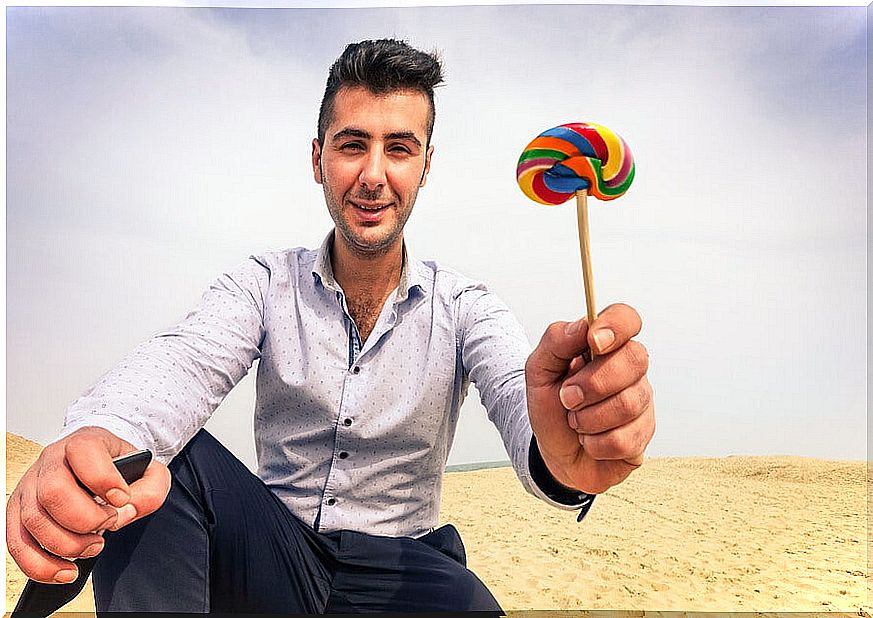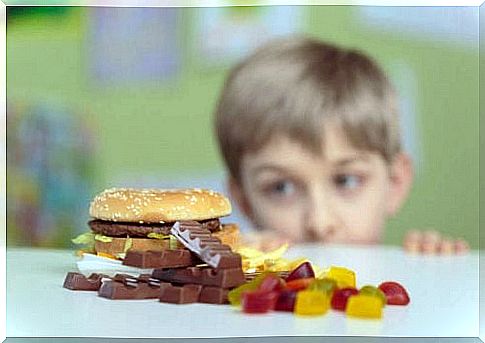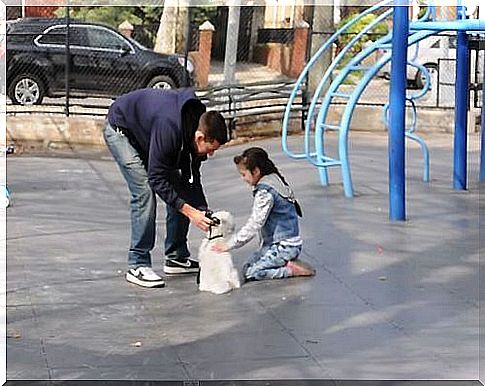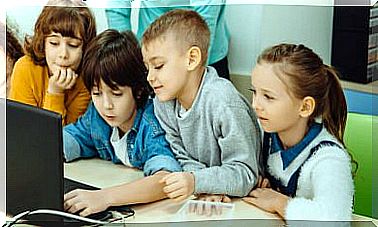Unknown People Who Feed Children Without Parental Consent, What To Do?

We have all heard the effusive recommendation of our parents: ” Do not receive things from strangers. ” Among the most worrying cases is that of strangers who give food to children without parental consent; What should we know about this practice?
The issue can be difficult for children to understand. From their perspective, it is a question of discerning between adult authority and protection against possible risk. Today, there are a myriad of oral drugs that are totally undetectable.
In addition, if it is not precisely an attitude for criminal purposes, but a kind of ‘good gesture’ towards the child, this is not appropriate either. It may happen that the child is allergic or intolerant to what they are offered, without the person in question having any idea about it.
Teaching our little ones to be selective
Perhaps this makes our children a little withdrawn or fearful. However, the activation of alerts and a selectivity criterion will help them to protect themselves. The first thing is to teach them to go only to people known to their parents.
Specifically, the little ones must also understand that receiving food or things from strangers can be dangerous. The correct thing is that they ask permission of their relatives and older acquaintances, before taking any gift.
Knowing how to identify family members, as well as hierarchies and institutions will always be of great help. In case of being alone and being approached, they must turn to another adult. Therefore, we must always give them action plans for their self-protection.
Strangers give food to children without parental consent in three keys:
- Warning the danger: The little ones should consider a rule that eating something given by a stranger is bad. We must be clear and explain the dangers that this entails.
- Food under parental supervision: Even if he receives something, the child must get used to taking the food to one of his representatives. Parents and teachers will always have to approve consumption.
- No secret gift is good: In fact, conscientious adults will always ask a child’s parents if they can give them a treat. The fact that it does not occur should raise suspicions in the infant.

Teach your children the danger of receiving candy from strangers
Any parent will want their child to feel safe at all times. However, the danger can be in any corner and that is why we must prepare them. It is always time to show children the bad things that happen.
At certain ages, it is good for kids to know about drugs and how easy it is to pass them off as food products. Addictions, rape and kidnapping are issues that, sooner or later, we will have to address.
In addition, all children should know that these types of situations should be reported to their parents and teachers. If you are alone, the right thing to do is go to the police and people in uniform.
Latent risks
These are the main risks of interaction with strangers for little ones:
- Kidnapping: Most parents understand that this is the quintessential risk. Kids need to know the odds that an adult will use food to carry out a kidnapping.
- Child abuse: A treat can be the ‘lure’ for a rape. The candy can have some drug, or simply be the means to gain the confidence of the victim.
- Incitement to addictions: There are many cases of gangs that distribute sweets with drugs just to incite addiction.
Drugs camouflaged in candy and the rise of youth addiction
Today, more than ever strangers who feed children without parental consent are a danger. Countries such as Spain, Nicaragua, Mexico and Colombia have registered recognized cases of drug distribution to minors.
Regarding drug trafficking, it is known that criminal organizations can use sweets for two purposes. The first is to transport drugs bypassing state surveillance. The second: increase addiction in the youth population.
It is no longer enough to doubt the quality of the packaging or the brand. Drugs in candy form are becoming more elaborate and look like commercial products. In some cases, well-known brand packaging is replicated.

Let’s use technology to our advantage
Lastly, parents can use technology, the internet, and other resources to alert our children. There are many documentaries, songs and programs dedicated to this type of orientation; do not hesitate to consult them and share them with your children.
Public campaigns for prevention have been carried out in almost all Spanish-speaking countries. In short, it is undoubtedly a true family priority to alert at all levels about strangers who give food to children without parental consent.










